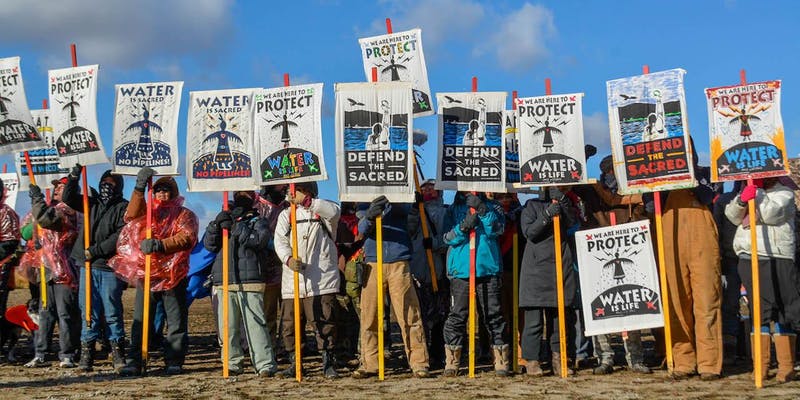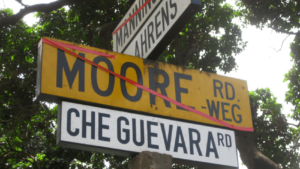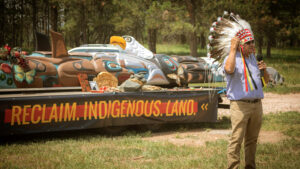Monday, November 30th, 2:30-4pm PST / 5:30-7pm EST
This event will take place online via Zoom and Facebook Live
Register here to access the Zoom link
With Dr. Kyle Powys Whyte
Hosted by the Humboldt State University Native American Studies Program and co-sponsored by The Natural History Museum.
As the runaway effects of climate change take hold, we can foresee two likely scenarios for climate action. In Scenario 1, we have substantial clean energy, but at the expense of continued injustices against Indigenous peoples, who have already endured centuries of colonial violence, dispossession, and betrayal. In Scenario 2, commitments to kin relationships are made, but the slow onset of achieving these relationships forecloses the global capacity to avoid climate disruptions.
Are there additional possible futures, and ones that do not sacrifice Indigenous consent, trust, accountability, and reciprocity? Can these qualities and kin relations be established at the pace of urgency? This webinar explores the profound effects colonialism, capitalism, and industrialization on the contemporary conditions for climate activism, underscoring one of the central questions for activists and policy-makers today: what does it truly mean to center environmental justice in our collective response to climate change?
Speaker Bio
Kyle Whyte is Professor and Timnick Chair in the Humanities in the departments of Philosophy and Community Sustainability at Michigan State University. His research addresses moral and political issues concerning climate policy and Indigenous peoples, the ethics of cooperative relationships between Indigenous peoples and science organizations, and problems of Indigenous justice in public and academic discussions of food sovereignty, environmental justice, and the anthropocene. He is an enrolled member of the Citizen Potawatomi Nation.








